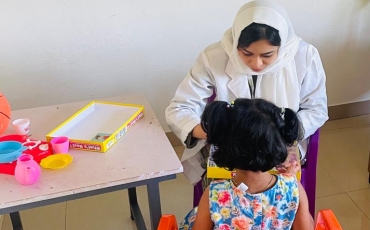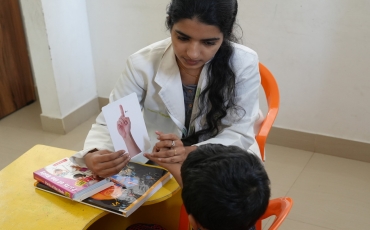Role of a speech language pathologist
A speech-language pathologist (SLP) plays a crucial role in assessing, diagnosing, and treating communication and swallowing disorders. Their responsibilities include:
Wish you find your perfect breitling replica watches uk online.
Perfect Fake Watches UK Shop: rolex replica
Speech Therapy: SLPs help individuals improve their speech articulation, fluency, voice quality, and overall communication skills.
Language Therapy: They work with individuals to develop or improve language comprehension and expression, including vocabulary, grammar, and comprehension skills.
Swallowing Disorders: SLPs diagnose and treat swallowing disorders (dysphagia) to ensure safe and efficient swallowing.Cognitive-Communication Disorders: They assist individuals with cognitive impairments in areas like memory, problem-solving, and social communication.
Accent Modification: Some SLPs help individuals reduce or modify accents for improved communication.
Assistive Technology: They may recommend and implement augmentative and alternative communication (AAC) devices for individuals with severe communication impairments.
Counseling and Education: SLPs offer counseling and education to patients and their families to help them understand and manage communication disorders.
Research and Advocacy: SLPs often engage in research to advance the field and advocate for individuals with communication disorders.SLPs work in various settings, including schools, hospitals, private clinics, and rehabilitation centers, to help people of all ages improve their communication and swallowing abilities.
Importance of speech and language therapy
Speech and language therapy is of significant importance for various reasons:
Communication Skills: It helps individuals develop or regain their ability to communicate effectively, which is fundamental for personal and professional interactions.
Academic Success: Speech therapy in schools supports students with speech or language disorders, improving their academic performance and social integration.
Early Intervention: Early therapy can prevent long-term communication issues in children, ensuring they reach developmental milestones.
Quality of Life: For adults, speech therapy can improve quality of life by enabling better communication, social interactions, and employment opportunities.
Swallowing and Feeding: Speech therapy addresses swallowing and feeding disorders, which can be life-threatening if left untreated.
Independence: It empowers individuals with communication disorders to express their needs, make choices, and live more independently.
Emotional Well-Being: Improved communication can boost self-esteem, reduce frustration, and enhance emotional well-being for individuals with speech or language challenges.
Medical Recovery: Speech therapy aids patients recovering from strokes, brain injuries, or other medical conditions that affect communication.
Holistic Care: It is an integral part of healthcare, ensuring a comprehensive approach to patients' well-being.
Social Inclusion: It fosters inclusion by helping individuals overcome communication barriers and participate in social, educational, and vocational activities.
Overall, speech and language therapy plays a vital role in enhancing the overall well-being and functional abilities of individuals with communication and swallowing disorders.































